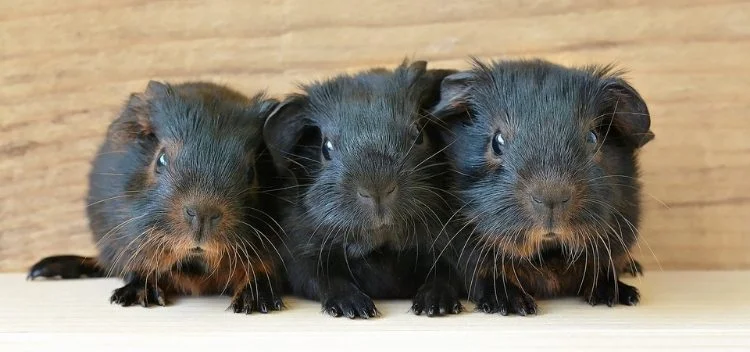
Caring for your guinea pigs, hamsters and other small mammals
At Rowan Vets, we’re excited to help you take excellent care of your pet guinea pig, hamster, rat, and other small furry pets.
Andrew Moore is an experienced exotics veterinary surgeon and is here to help you keep your small pet in great condition, as well as provide treatment for any health conditions that should arise. For practical home-care advice and monitoring of your pet’s weight, come and talk to our Registered Veterinary Nurses.
Book a small furry pet consultation
Is your small furry pet a rabbit?
We have specific information about caring for pet rabbits here >
Keeping small furries in pairs
In the wild, guinea pigs are extremely social creatures and often live in groups, or ‘herds’. These little animals enjoy company so you should keep them at least in pairs at home. Not all guinea pigs will get along, but you can divide their hutch with some chicken wire so they still benefit from each other’s company without having access to fight.
Hamsters, rats, chinchillas, and gerbils will also generally do better in pairs. The Syrian hamster is an exception – they are solitary creatures and like to live alone.
Neutering guinea pigs
We do not recommend routine neutering of female guinea pigs, unless your Vet has identified a health problem, for example cystic ovaries. If you are planning on keeping opposite sex guinea pigs together, we recommend neutering the male(s). This will prevent any unwanted breeding, and also will reduce fighting between two or more males.
Male guinea pigs should ideally be castrated at the age of 6-8 months old, once you can see the testicle sac clearly bulging. The surgery is done under general anaesthetic and is fairly quick. As with all surgery, the procedure does have some potential complications like wound infection or bleeding, but is usually safe.
It’s worth noting that guinea pigs can mate from a very young age. Therefore, male guinea pigs should be separated from females before they are 4 weeks old.
It’s also worth noting that guinea pig pregnancies after 6 months of age put the female and her offspring’s lives at risk – it is unlikely she will be able to give birth naturally and may need an emergency cesarean.
Home-care advice
Providing a safe and comfortable environment
Guinea pigs, hamsters, and other small furries are prey animals so their natural instinct is to run and hide. We recommend that you handle them gently from an early age to get them used to bring around people.
Provide your small pet with bolt holes/hiding places to help them feel safe – open spaces with no protection will cause them to feel under threat.
Small pet behaviour
Small Furries that show aggressive behaviour towards you and/or other pets could be in physical pain, distress and/or suffering from emotional stress. If they are being aggressive, it’s best to book them in with one of our Vets for a check-up.
Small pets can often lack mental stimulation and can become bored. This can lead to behavioural problems and poor health unless addressed early on. The best way to keep your guinea pig, hamster, or other small furry pet mentally stimulated and physically active, is by creating a ‘wild’ environment that enables them to mimic their their natural wild behaviours.
This can be achieved by adding the below items to their hutch or cage:
- tunnels made from cardboard tubes
- unsprayed twigs
- platforms for hiding under and climbing on
- food scattered on a tray or the floor of their home so they have to forage for it
- boredom busting toys
Free pet care advice
Each month we create free advice on our website for small furries and other pets. You can receive this advice straight to your inbox by signing up to receive our email newsletters – learn more.
We’ve also created a range of helpful small furry pet factsheets



